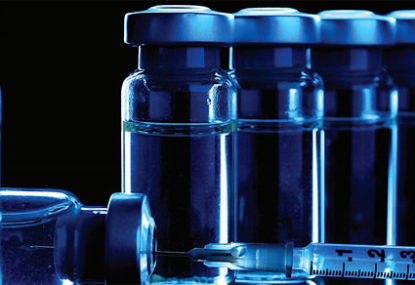'I've just won a stage of the Tour de France, mate!': Hindley grabs yellow jersey as Aussie blows Tour apart
Australia's Jai Hindley has said he is "lost for words" after a shock stage victory at the Tour de France earned him the leader's…

“The evidence establishes conclusively that Mr Bruyneel was at the apex of a conspiracy to commit widespread doping on the USPS and Discovery Channel teams spanning many years and many riders.”
“Similarly, Dr Celaya and Mr Marti were part of, or at least allowed themselves to be used as instruments of, that conspiracy.”
The above statement came fast on the heels of the decision by the American Arbitration Association to hand down a 10-year ban to Johan Bruyneel, and an eight-year ban each to Dr. Calaya and trainer Jose Marti for their part in enabling the doping that permeated the US Postal and Discovery teams.
These three now join Australian Matt White, who was also banned (for six months), in the wake if the fallout from the USADA investigation. This was the investigation which eventually saw a lifetime ban given to Lance Armstrong.
Many are asking if the bans handed down to Bruyneel, Calaya and Marti are too harsh, when in fact the ruling is too lenient. Clean cyclists are the only ones for whom these bans are unfair.
Why a trio like this, who not only knew about doping on these teams but actively encouraged it, should ever again be allowed anywhere near sport and young athletes is beyond me.
The decision by Orica-GreenEDGE to reinstate Matt White after he’d been banned and subsequently fired set a dangerous precedent. It is one that can only be avoided in the future by handing out lengthy bans to anyone from management who either doped as an athlete or encouraged, allowed or enabled it as a manager.
One of the arguments with regards to not banning ex-riders who doped going into management (touted, funnily enough, by ex-riders who doped such as Jonathan Vaughters) is that these former riders represent a wealth of experience not only of cycling and training but of doping, therefore they can help young riders stay away from chemical temptation.
However, if anyone is in a position to tell young riders how to avoid doping it is surely former riders who themselves avoided doping. I know several who never became famous, never hit it rich, never won the jerseys and trophies that their natural talent warranted, who would jump at the chance to manage at Garmin-Sharp, BMC Racing or indeed Orica-GreenEDGE.
Yet the pro bike world evidently believes that only those who performed at the highest echelons of the sport deserve a crack at managing there. This, despite the depressing and increasing evidence that the vast majority of the pelotons from which these men emerged were involved in widespread doping.
“I do not dispute there are certain elements of my career that I wish had been different, nor do I dispute that doping was a fact of life in the peloton for a considerable period of time,” Bruyneel wrote on his website, reacting to the 10-year ban.
“However, a small minority of us have been used as scapegoats for an entire generation. There is clearly something wrong with a system that allows only six individuals to be punished as retribution for the sins of an era.”
There is clearly something wrong with a man who for so long encouraged his charges to dope and saw nothing wrong with it.
There is clearly something wrong with a cycling federation that knew what was going on and allowed it to continue with a silent nod and quiet blessing, going so far as to cover up evidence that its leading light was on the juice.
And there is clearly something wrong with an anti-doping system that took so long to get to the bottom of the truth, which, coincidentally, it is yet to do fully.
Yet Bruyneel is right. Never mind that there was also an institutionalised doping culture at Rabobank, and yet no charges have ever been brought there. Similar can be said of Bjarne Riis’ teams, with Tyler Hamilton and others claiming that the team was mostly augmented and that the management knew.
I could go on and on.
Where I think USADA is failing is not in punishing Bruyneel and his cohorts, because this is a necessity, but in not launching investigations into Jim Ochowicz, Steve Johnson, Thom Wiesel and a host of others.
Ochowicz is head of BMC Racing, Johnson is head of USACycling and Wiesel bankrolled Armstrong’s career. Each has links to Armstrong and to USA Cycling that paint a less than rosy picture (‘incestuous’ may be more appropriate) and which demands investigation.
USADA has been criticised for going after one team and two men in particular, Armstrong and Bruyneel, and there may be some merit to this criticism.
Others who gave evidence to the investigation (such as George Hincapie who now funds the Hincapie Development Team) got pathetic bans and have largely been forgotten. Others have been punished more in accordance with their ‘misdemeanours’.
This is where, for once, I agree with Johan Bruyneel. USADA has done a commendable job with the Armstrong affair in many respects even if it has failed on others, but now it is time for the UCI and any other organisation, national or otherwise, to drive these cheats out of the sport.
Bruyneel and Lance are merely the tip of a very large iceberg. I know that. You know that. And Johan really knows that.